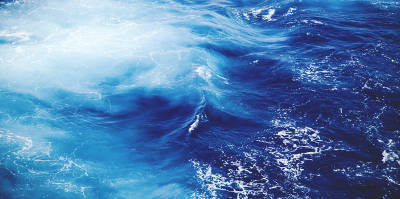← students

| First name: | Karina |
| Last name: | Stucken |
| Country: | Chile |

Thesis Subject:Genomic and physiological approaches for elucidation of regulatory pathways involved in PSP toxin production in the cyanobacterium Cylindrospermopsis raciborskii.
| Education: | |
| 2006-2009 PhD in Marine Microbiology (MarMic) at the Alfred Wegener Institute for Polar and Marine Research. | |
| 2005-2006 Title of Molecular Biotechnology Engineering at the Faculty of Sciences of the University of Chile. | |
| 2001-2005 Molecular Biotechnology degree at the Faculty of Sciences of the University of Chile. |
Scientific Interests and Goals:Paralytic shellfish poisoning (PSP) is a syndrome related to the consumption of shellfish contaminated with neurotoxic microalgae. Dinoflagellates are the main producers of PSP toxins in marine environments but PSP toxin production is also well described in freshwater cyanobacteria. The biosynthetic pathway of saxitoxin (STX) and its analogues remains poorly described, but studies with labeled precursors have suggested that Dinoflagellates and Cyanobacteria share a similar if not identical STX biosynthetic pathway. The complexity of dinoflagellates genome (3000–215000 Mpb) makes it unlikely in the near future to conduct whole genome sequencing. In contrast, the simplicity of cyanobacterial genomes (from 1.8 to 13.6 Mb, described thus far) makes of these microorganisms the best model for understanding the pathways involved in PSP toxin regulation.
In order to find the regulatory metabolic pathways for toxin production in cyanobacteria, we propose a comparative genomic study, between two C. raciborskii strains that share 99.7% similarity in their 16S rRNA sequences but differ in their toxin profile. A genome sequencing project is in progress. One of the thesis objectives comprises involvement in manual annotation of both genomes, and the genomic characterization of the differences between a toxigenic C. raciborskii strain D9 that produces PSP toxins and a producer of the hepatotoxin cylindrospermopsin (CYL) (strain CS-505). Furthermore, the thesis project will include the study of the physiological conditions that modify the toxin profile in C. raciborskii D9 and CS-505. Once the physiological conditions causing changes in the growth rate and toxin profile are established, the use of whole genome microarrays of both strains will be a useful tool for deciphering the genes involved in toxin regulation. As a way of validating the results obtained by microarrays, real-time PCR will be performed. In cooperation, we will perform a comparison study with dinoflagellate sequences available in databases, as well as with data obtained by generated fosmid libraries of the dinoflagellate Alexandrium minutum, a producer of PSP toxins. The aim of this last point is to evaluate the homology of PSP toxicity among the Cyanobacteria and Dinoflagellates and this may assist in identifying the key PSP-toxin genes in Alexandrium.
In order to find the regulatory metabolic pathways for toxin production in cyanobacteria, we propose a comparative genomic study, between two C. raciborskii strains that share 99.7% similarity in their 16S rRNA sequences but differ in their toxin profile. A genome sequencing project is in progress. One of the thesis objectives comprises involvement in manual annotation of both genomes, and the genomic characterization of the differences between a toxigenic C. raciborskii strain D9 that produces PSP toxins and a producer of the hepatotoxin cylindrospermopsin (CYL) (strain CS-505). Furthermore, the thesis project will include the study of the physiological conditions that modify the toxin profile in C. raciborskii D9 and CS-505. Once the physiological conditions causing changes in the growth rate and toxin profile are established, the use of whole genome microarrays of both strains will be a useful tool for deciphering the genes involved in toxin regulation. As a way of validating the results obtained by microarrays, real-time PCR will be performed. In cooperation, we will perform a comparison study with dinoflagellate sequences available in databases, as well as with data obtained by generated fosmid libraries of the dinoflagellate Alexandrium minutum, a producer of PSP toxins. The aim of this last point is to evaluate the homology of PSP toxicity among the Cyanobacteria and Dinoflagellates and this may assist in identifying the key PSP-toxin genes in Alexandrium.


